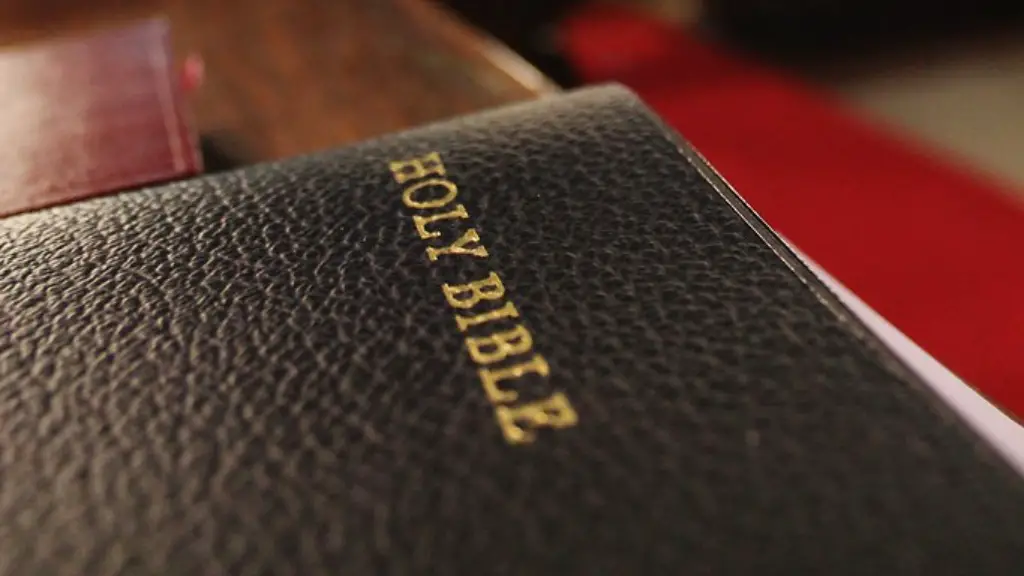The Bible is filled with instruction and insight on virtually every aspect of life. In recent years, the discussion of tradition and its place in Christian life has become relevant. Does the Bible speak on tradition and how should Christians handle it?
When we discuss tradition, the first thing that comes to mind for many is the traditions associated with religious holidays, such as Christmas and Easter. What does the Bible actually say about these traditions? The Bible does not explicitly address Christian holidays but it does highlight the importance of gathering for worship and celebration (Illumination Bible, 2016). It is important to remember that the individual beliefs and traditions that Christians celebrate should honor God and not be focused on worldly celebrations, “Ascribe to the LORD glory and strength. Ascribe to the LORD the glory due his name; bring an offering and come before him” (Psalm 96:8-9). This verse encourages worshipping and showing honor to God and not to the world’s holiday traditions.
The Bible also instructs us to not have traditions that are clearly wrong. God gave us a moral compass and encourages us to follow it. “Do not turn aside to the right or to the left; turn your foot away from evil” (Proverbs 4: 27). The Bible also talks about being wise and discerning, “My son, if sinners entice you, do not consent. If they say, “Come with us, let us lie in wait to shed blood; let us lurk secretly for the innocent without cause” (Proverbs 1:10-11). Through these verses we can see that we must be wise but also discerning when it comes to traditions that do not line up with God’s will.
The Bible also speaks about traditions that can promote good, “And now, Israel, what does the LORD your God require of you but to fear the LORD your God, to walk in all his ways, to love him, to serve the LORD your God with all your heart and with all your soul” (Deuteronomy 10:12). This verse emphasizes God’s desires for us and mentions loving Him and serving Him. While God does not necessarily promote formal traditions to honor Him, He does encourage us to continually strive to love and serve Him, which may involve coming up with our own ways to honor and celebrate Him.
When it comes to our own traditions, the Bible cautions us on being wise and discerning. While traditions can be good and can be meaningful, they can have the potential to lead us astray if we are not careful. We must ensure that we are following the will of God and honoring Him in all things. “Whatever you do, work heartily, as for the Lord and not for men” (Colossians 3:23). This verse emphasizes that we must strive to always honor God in all we do and in the traditions that we practice. We must also remember that these traditions should bring glory and honor to God, “Whatever you do, do all to the glory of God” (1 Corinthians 10:31).
What are some Christian tradtions?
Many Christians are familiar with a number of Christian traditions. One popular tradition is that of lighting Advent candles, which symbolizes the light of Jesus’ coming, as well as celebrating the Christmas season. Another is the special Easter egg, which symbolizes the empty tomb after Jesus’ resurrection. These traditions are not specifically mentioned in the Bible, but they are meaningful and can help to bring glory and honor to God. Other traditions may include fasting during Lent or reading a passage of Scripture each morning.
What does tradition mean for Christians today?
Tradition is a part of practically every society, and Christians are no exception. The Bible does not specifically talk about practising traditions, however, it does provide insight on attitudes and behaviour that we should aspire to as followers of Christ. This includes living with wisdom and discernment, worshipping and honouring God, and showing love and service to others. As Christians, we can take these Biblical principles and apply them to our lives. We can come up with meaningful traditions that bring glory to God, while also fostrering love and joy in the community.
What impact does tradition have on our life?
Tradition can influence our life in many ways. It can be meaningful and promote good values, or it can be hurtful and lead us away from God’s will. It can be a source of strength for believers and for families and it can provide a common connection for those seeking to grow closer in their faith. Establishing traditions within our spiritual life can be a powerful tool to draw us closer to God and to generate meaningful relationships with others. It can also give structure and consistency to our spiritual life, which can be beneficial when making decisions or staying in a state of continual prayerfulness.
Conclusion
When it comes to traditions, the Bible does not provide us with a road map or a set of rules to follow. Instead, it provides us with guidance and wisdom. We must use these Bible passages as a foundation for understanding how to properly handle and practice traditions in our lives. We must strive to make sure that our traditions honor God and bring glory to Him and not to the world. With careful discernment and wisdom, traditions can bring blessings and joy to both those who practice them and to those around them.


